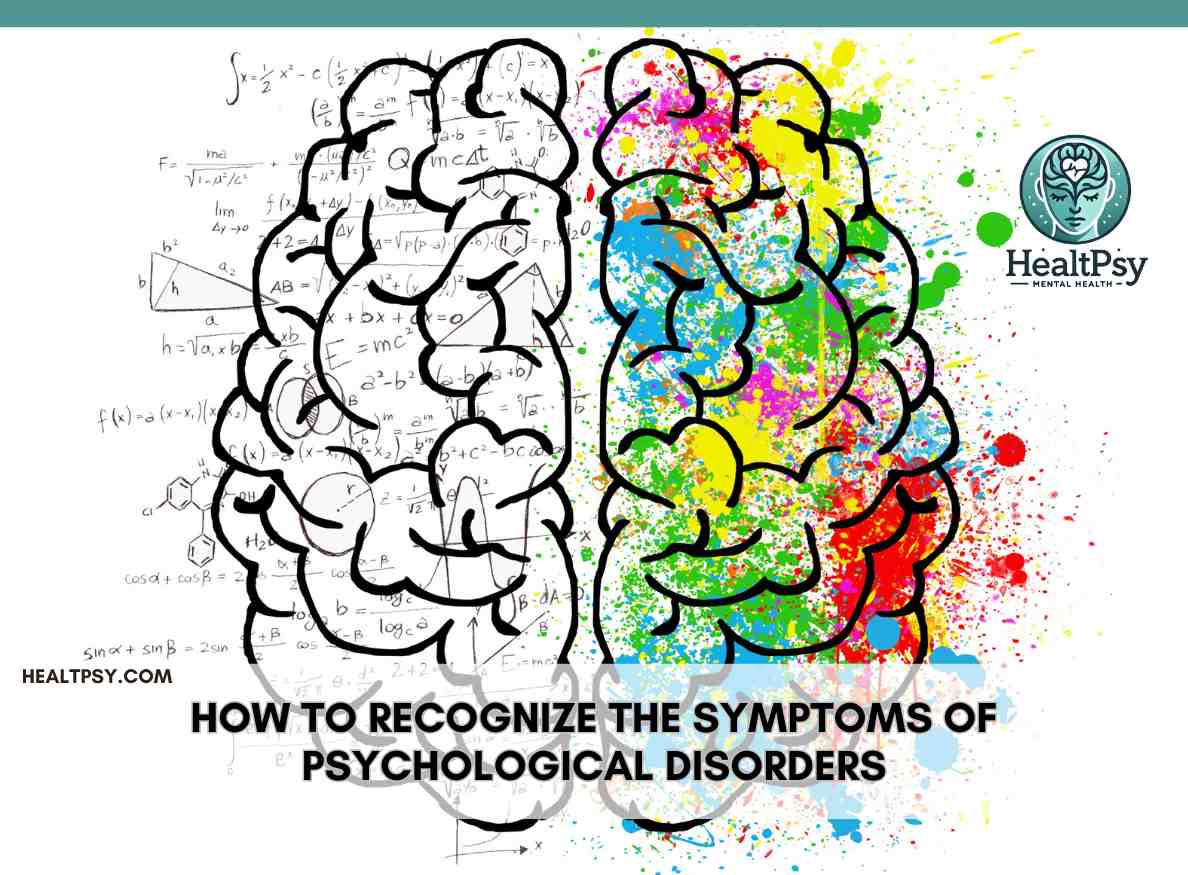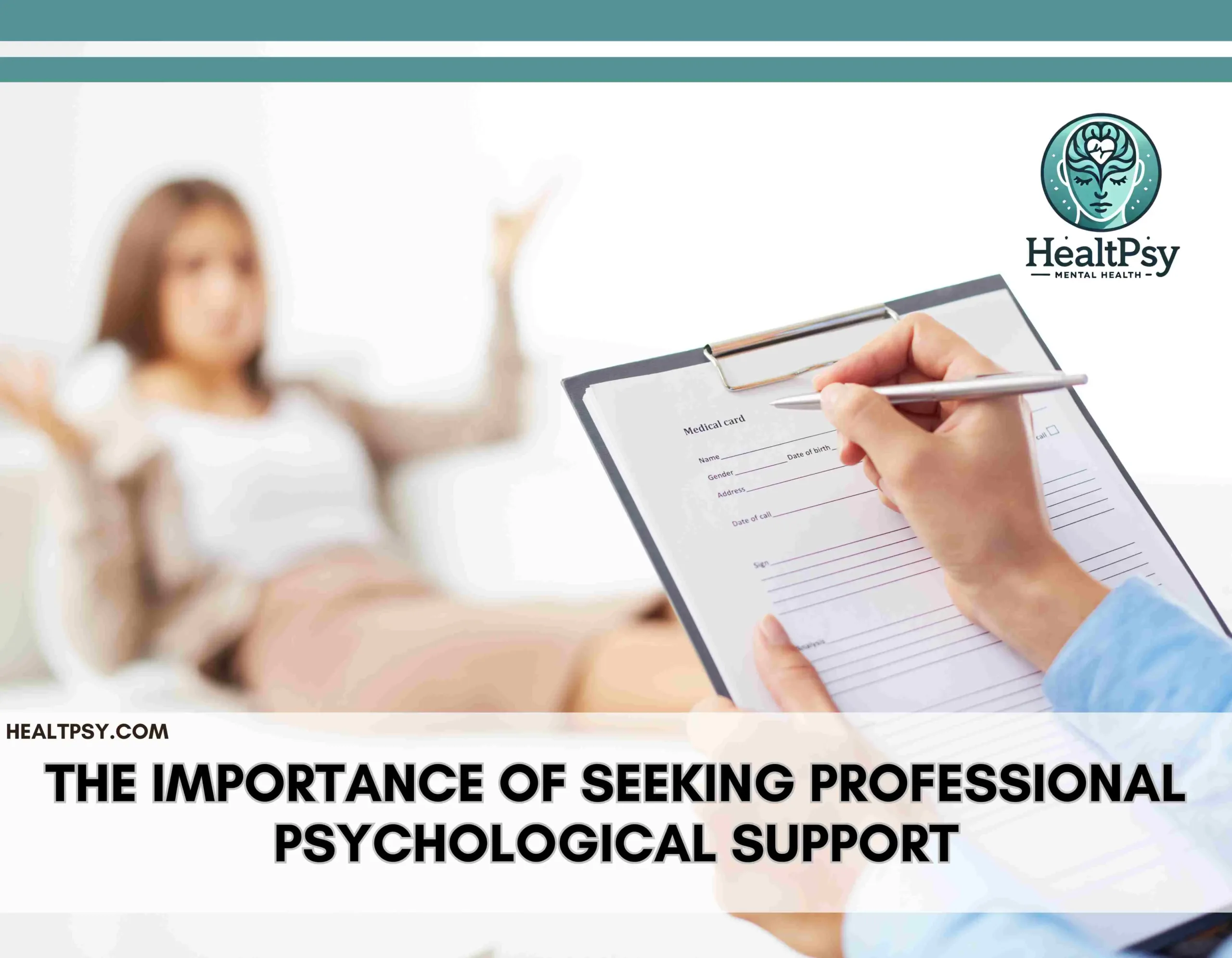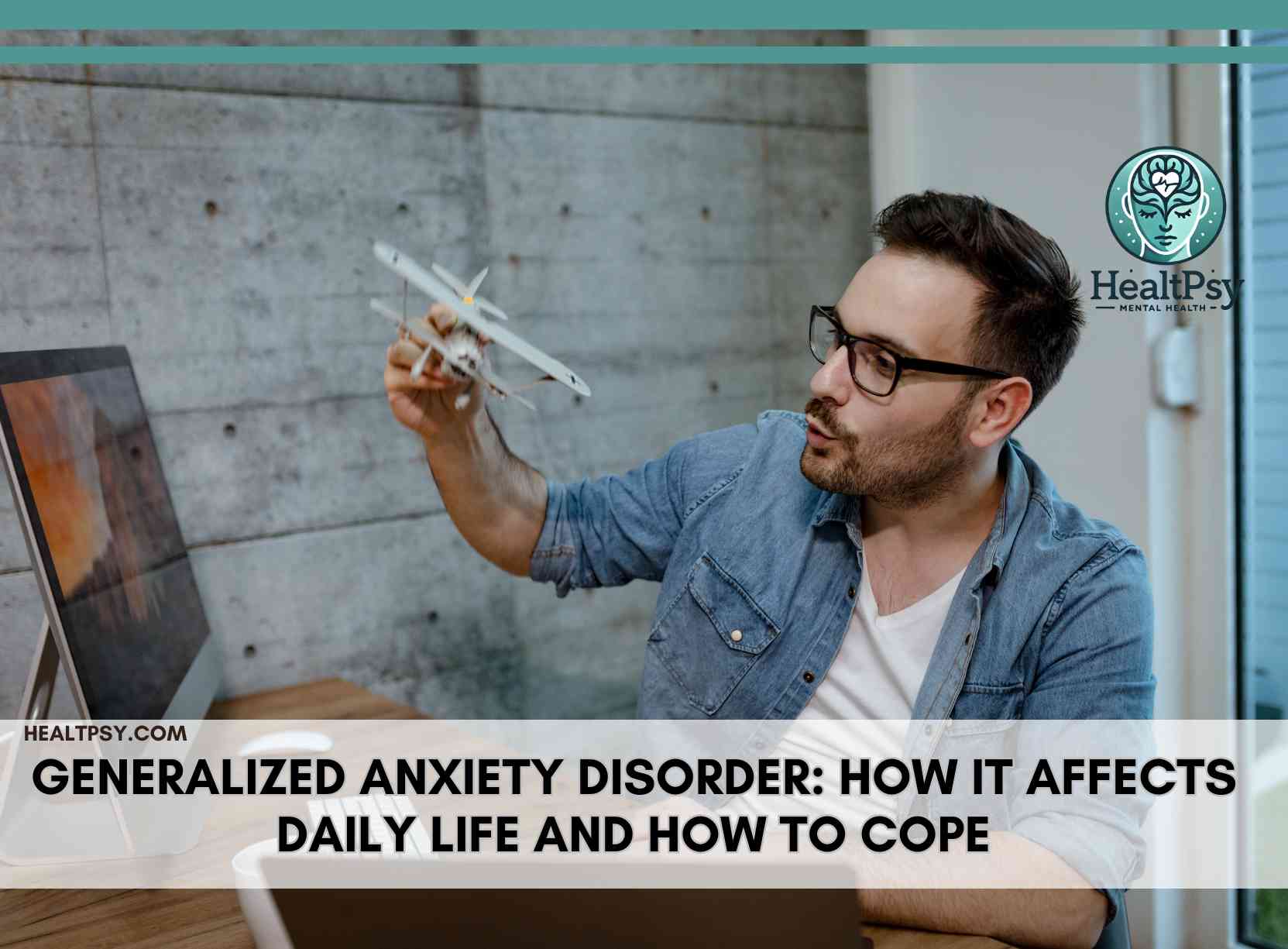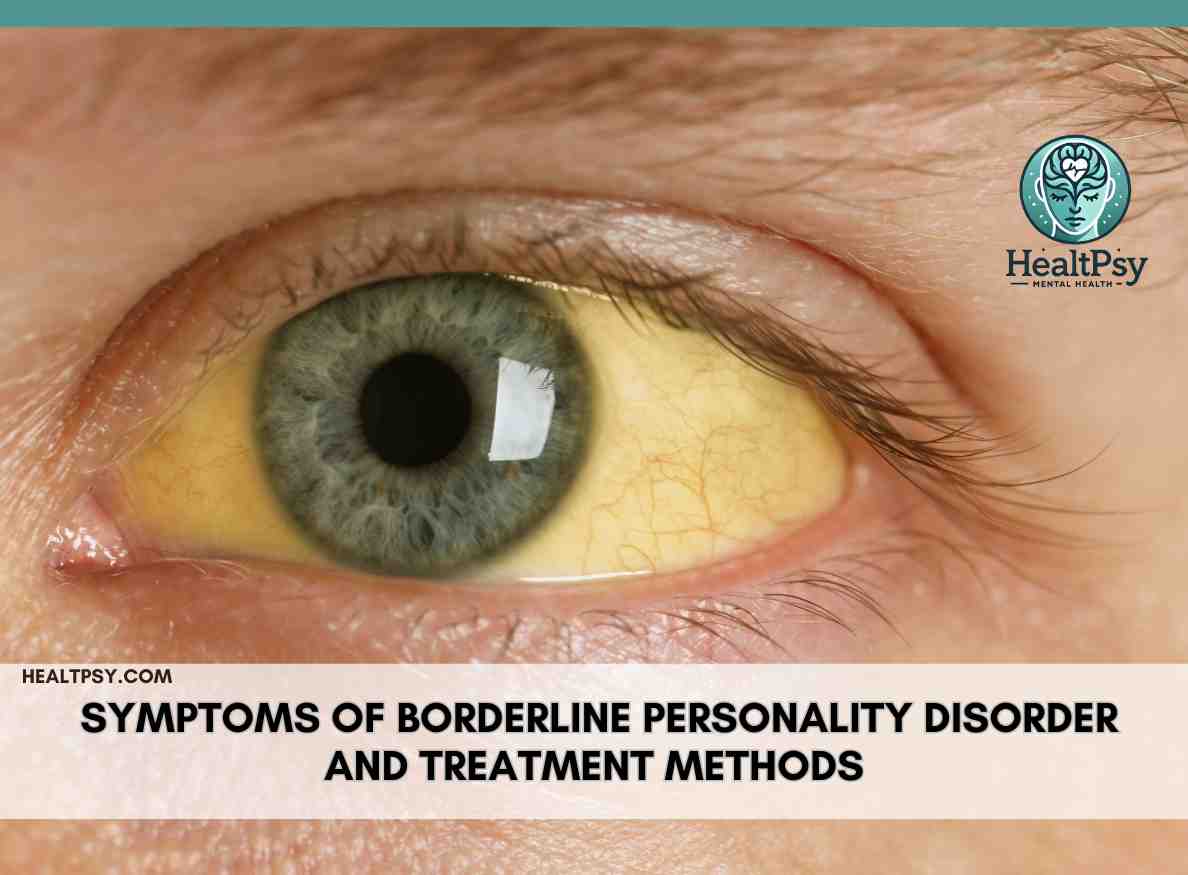7 Key Symptoms of Psychological Disorders You Shouldn’t Ignore
Symptoms of Psychological Disorders can significantly impact a person’s life, affecting emotions, behaviors, and cognitive functions. Understanding these symptoms is essential for early intervention and effective treatment. Symptoms of Psychological Disorders fall into four major categories: emotional, behavioral, cognitive, and physical symptoms. Identifying these symptoms can help in recognizing mental health issues early. Each category reflects different aspects of mental well-being, and understanding them can lead to timely intervention and better management.
For more information on mental health disorders, visit the National Institute of Mental Health (https://www.nimh.nih.gov/).
Emotional Symptoms of Psychological Disorders
- Prolonged sadness or hopelessness
- Excessive worry or irrational fears
- Sudden mood swings and irritability
- Unexplained anger or aggression
- Feelings of guilt or worthlessness
Emotional symptoms are among the most noticeable indicators of Symptoms of Psychological Disorders. Persistent feelings of sadness, excessive worry, and unprovoked mood swings can affect a person’s daily life and relationships. Recognizing these signs early allows for timely support and intervention. Learn more about the impact of emotional distress on daily life in our article on The Impact of Mental Health on Daily Life (https://healtpsy.com/impact-of-mental-health).
Behavioral Symptoms of Psychological Disorders
- Social withdrawal and isolation
- Difficulty maintaining responsibilities
- Risk-taking behaviors, including substance abuse
- Engagement in repetitive or compulsive behaviors
- Self-harming tendencies
Behavioral changes often signal underlying Symptoms of Psychological Disorders. A person may isolate themselves, neglect responsibilities, or engage in risky behaviors. Recognizing such patterns can help in identifying mental health challenges and seeking the necessary help. If you or someone you know struggles with mental health, consider consulting a professional. Visit Psychology Today (https://www.psychologytoday.com/) to find a licensed therapist near you.
Cognitive Symptoms of Psychological Disorders
- Persistent negative thoughts
- Memory impairment and concentration difficulties
- Hallucinations or delusions
- Paranoia and distrust
- Distorted perception of reality
Cognitive symptoms affect thought processes and perception. Individuals experiencing paranoia, hallucinations, or memory difficulties may struggle with daily activities. Early intervention can improve their ability to manage these challenges effectively. Read our guide on Managing Depression: Symptoms, Causes, and Treatment (https://healtpsy.com/managing-depression) for further insight.
Physical Symptoms of Psychological Disorders
- Unexplained aches and pains
- Sleep disturbances
- Significant weight changes
- Chronic fatigue
- Changes in appetite
Physical symptoms are often overlooked but can indicate underlying Symptoms of Psychological Disorders. Chronic fatigue, drastic weight fluctuations, and persistent pain without a medical cause may be linked to mental health conditions. Addressing both physical and psychological aspects is crucial for effective treatment. For a deeper understanding of how mental health affects physical health, refer to Harvard Medical School’s Mental Health Research (https://www.health.harvard.edu/topics/mental-health).
Recognizing Early Warning Signs of Symptoms of Psychological Disorders
Early intervention plays a vital role in managing Symptoms of Psychological Disorders effectively. Warning signs to watch for include:
- Struggles with maintaining personal or work responsibilities
- Increased reliance on alcohol or drugs
- Severe changes in eating or sleeping habits
- Sudden withdrawal from social interactions
- Uncharacteristic aggression or irritability
By recognizing these early warning signs, individuals can take proactive steps toward seeking professional support and managing symptoms before they worsen.
The Importance of Early Intervention for Symptoms of Psychological Disorders
Timely diagnosis and treatment of Symptoms of Psychological Disorders can lead to better recovery outcomes. Therapy, medication, and lifestyle changes such as mindfulness, exercise, and social support contribute to improved mental health.
Additionally, reducing stigma around seeking help plays a vital role in encouraging individuals to reach out for professional assistance. Awareness campaigns and education programs can help shift societal attitudes, making it easier for individuals to seek and receive care.
By seeking early intervention, individuals can develop coping mechanisms that enhance resilience, reduce stress, and improve emotional stability.
How to Support Someone with Symptoms of Psychological Disorders
If you suspect that a loved one is struggling with Symptoms of Psychological Disorders, consider the following ways to offer support:
- Encourage professional help
- Offer emotional support without judgment
- Be patient and understanding
- Educate yourself about their condition
- Promote a healthy lifestyle
Providing a supportive environment can make a significant difference in someone’s mental health journey.
Conclusion
Recognizing the Symptoms of Psychological Disorders is essential for early intervention. If you or someone you know exhibits concerning signs, seek professional assistance to promote better mental well-being.
If you’re looking for more resources on how to maintain good mental health, check out our guide on How to Maintain Mental Health (https://healtpsy.com/maintain-mental-health).
you might also like





